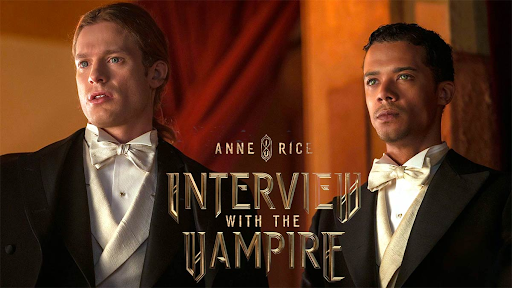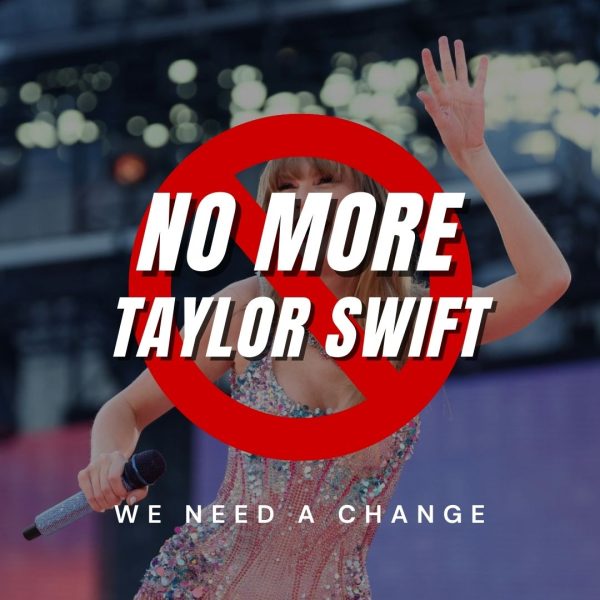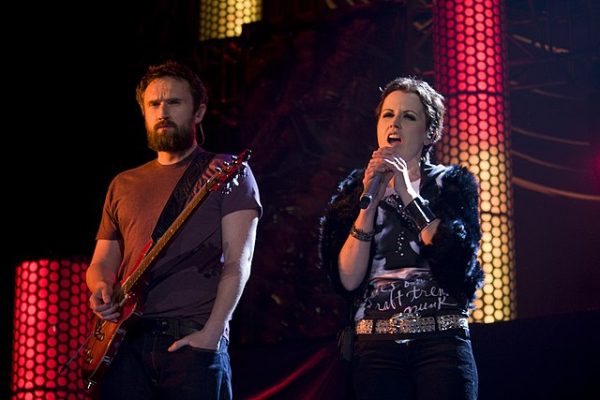Interview With The Vampire: 28 years later

A photo of Lestat and Louis from the 2022 Adaptation of “Interview With a Vampire” Photo By: The Playlist
It’s been 28 years since the 1994 “Interview With The Vampire” was released, but the story first came to life with Anne Rice’s 1976 gothic horror novel of the same name.
The novel follows Louis de Pointe du Lac (a two-hundred-year-old vampire) recounting his tale to a willing journalist who had been following him. When narrating the story to Daniel Molloy (the writer) he mentions how he met a man, soon to reveal his true nature as a vampire, named Lestat de Lioncourt. Once they meet, de Lioncourt persuades de Pointe du Lac to choose the path of immortality and become his companion in life.
Now, in 2022, “Interview With The Vampire” is, once again, being brought to life through television. The first episode actually premiered on Oct. 2 on The AMC Network, and so far, reviews have been nothing short of positive.
But the question is, does it hold up to the movie?
The movie was amazing–especially for its time–because it dealt with themes such as mental health and abusive relationships in exceptional ways, and though not outright, it explored a queer relationship between de Pointe du Lac and de Lioncourt. However, the writing was not the only thing to stand out: the casting and acting of these roles were another reason for its success. De Pointe du Lac was played by Brad Pitt and de Lioncourt was played by Tom Cruise and many other famous actors such as Christian Slater, Kristen Dunst and Antonio Banderas. However, I know it can be concerning when an A-list actor is cast because it could mean money over the quality of the movie, but these actors were able to capture the emotions and underlying messages fairly well.
However, despite the movie being amazing for its time, I believe the television series brings a fresh take to the book and coincides with people of this generation.
The series invites more diversity to a story otherwise whitewashed and tackles issues such as race: instead of de Pointe du Lac being a white plantation owner in the 1700’s, he is a black man (played by Jacob Anderson) in the 1910’s who deals with blatant racism daily in the streets of New Orleans. Though, unlike previous adaptations, sexuality is a focal point for the story and explores more of de Pointe du Lac and de Lioncourt’s relationship: plus the hardship of being queer. The series still explores issues such as mental health, abusive relationships and even the representation of autism.
Besides representation, the filmography, writing and especially the casting play a huge part in why this adaptation holds up–or even surmounts–the movie adaptation. I emphasize casting because, unlike the movie, these actors embodied their characters: particularly Sam Reid, who plays de Lioncourt. After all, Reid can embody the manic personality of de Lioncourt but also keeps the vampiristic nature that makes him so enticing.
Though I’ve come to love both adaptations of “Interview With a Vampire” and would recommend giving both a try, I can’t help but have an overwhelming fondness for the new series because of all the representation that it incorporates. The filmography seems to never bore and the writing/acting keeps me enticed from beginning to end.

Hola, my name is Carmen DeThomas, and I’m a senior here at North. This is my first year in journalism, but outside of journalism, I work for Ross. In...











